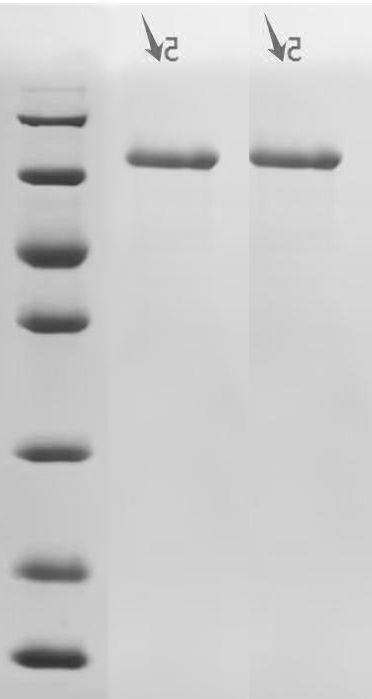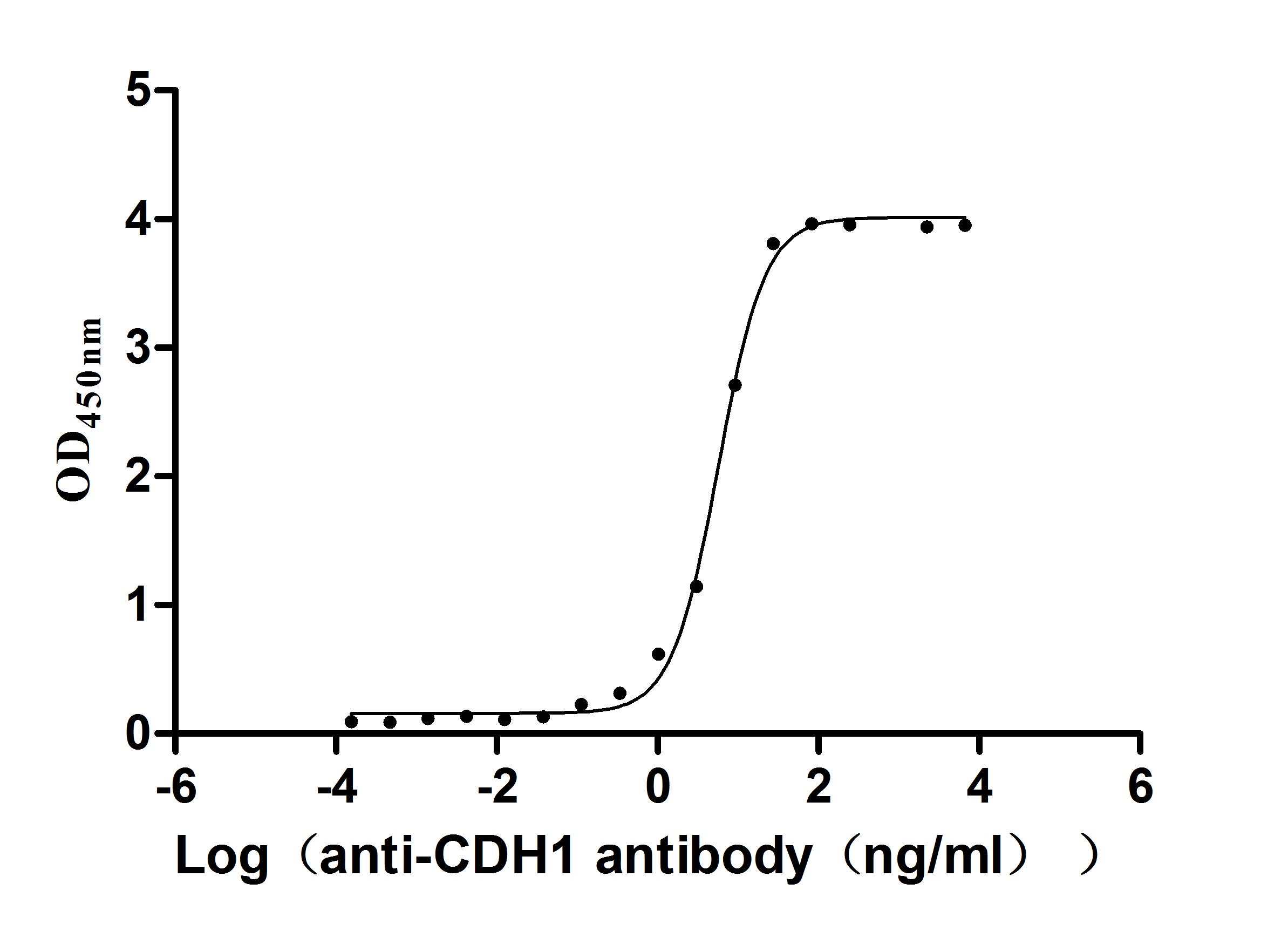The recombinant human CDH1 protein is a mammalian cell-expressed biologics product encompassing amino acid residues 155-709 of the native human cadherin-1 protein. It is engineered with a C-terminal 10xHis affinity tag to facilitate purification processes. This lyophilized preparation demonstrates a purity exceeding 90% through SDS-PAGE quality control and meets stringent endotoxin specifications of <1.0 endotoxin unit per microgram (EU/μg) as validated by LAL testing. Functional analysis via immobilized ligand interaction assays reveals its specific binding capacity to the anti-CDH1 recombinant antibody (CSB-RA005034MA2HU), demonstrating the EC50 between 5.151 and 6.358 ng/mL when coated at 2 μg/mL in ELISA platforms. The mammalian expression system ensures proper post-translational modifications critical for maintaining structural integrity, while the extended histidine tag enhances purification efficiency without compromising functional domains. These characteristics position this recombinant CDH1 protein as a vital reagent for cadherin-mediated adhesion studies, epithelial-mesenchymal transition research, and therapeutic antibody development requiring physiologically relevant protein conformations.
The human CDH1 protein is a calcium-dependent cell adhesion molecule critical for maintaining the integrity of epithelial tissues. CDH1 is located on chromosome 16q22.1 and plays a vital role in cellular adhesion, polarity, and tissue morphology [1][2]. Mutations in the CDH1 gene can lead to various developmental disorders and predispose individuals to certain cancers, most notably hereditary diffuse gastric cancer (HDGC) [3][4].
CDH1 is instrumental in forming adherens junctions between cells, impacting processes like cell signaling and migration. Its functional loss has been associated with increased tumor migration and invasiveness [2][5]. Specifically, the downregulation or mutation of CDH1 can initiate epithelial-mesenchymal transition (EMT), a critical step in cancer metastasis [6]. Notably, variants like rs9929218, located in an intron of the CDH1 gene, have been linked to the modulation of E-cadherin expression across various human tissues, illustrating the gene's broader impact on cellular behavior [2].
Moreover, the involvement of CDH1 in cancer is underscored by its role in familial cancer syndromes, where germline mutations lead to significant cancer susceptibility. Approximately 40% of families with clinical criteria for HDGC harbor such mutations, highlighting the gene's clinical significance [4]. Furthermore, studies have identified somatic mutations in CDH1 as crucial contributors to the pathogenesis of various types of neoplasms, including gastric, breast, and colorectal cancers [4][5].
The stability and expression of CDH1 are meticulously regulated. Alterations can lead to reduced protein abundance, influenced by post-transcriptional mechanisms such as microRNA-mediated silencing, underscoring its importance in maintaining cellular homeostasis [6].
References:
[1] Y. Peng, S. Li, et al. Prenatal whole exome sequencing reveals a novel cdh1 mutation associated with blepharo-cheilo-dontic syndrome. 2020. https://doi.org/10.21203/rs.3.rs-135776/v1
[2] N. Song, K. Kim, et al. Colorectal cancer susceptibility loci and influence on survival. Genes Chromosomes and Cancer, vol. 57, no. 12, p. 630-637, 2018. https://doi.org/10.1002/gcc.22674
[3] H. Yamada, K. Shinmura, et al. Germline alterations in the cdh1 gene in familial gastric cancer in the japanese population. Cancer Science, vol. 102, no. 10, p. 1782-1788, 2011. https://doi.org/10.1111/j.1349-7006.2011.02038.x
[4] J. Figueiredo, S. Melo, et al. Clinical spectrum and pleiotropic nature ofcdh1germline mutations. Journal of Medical Genetics, vol. 56, no. 4, p. 199-208, 2019. https://doi.org/10.1136/jmedgenet-2018-105807
[5] A. Bustos-Carpinteyro, C. Oliveíra, et al. Cdh1 somatic alterations in mexican patients with diffuse and mixed sporadic gastric cancer. BMC Cancer, vol. 19, no. 1, 2019. https://doi.org/10.1186/s12885-019-5294-0
[6] JD. Ewerth, A. Schmidts, et al. Suppression of apc/ccdh1 has subtype specific biological effects in acute myeloid leukemia. Oncotarget, vol. 7, no. 30, p. 48220-48230, 2016. https://doi.org/10.18632/oncotarget.10196





